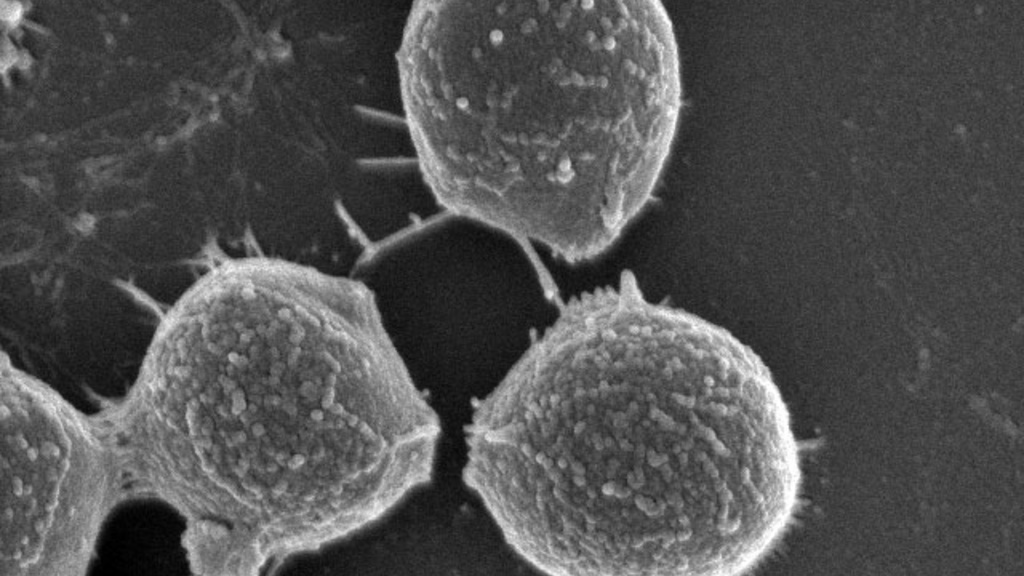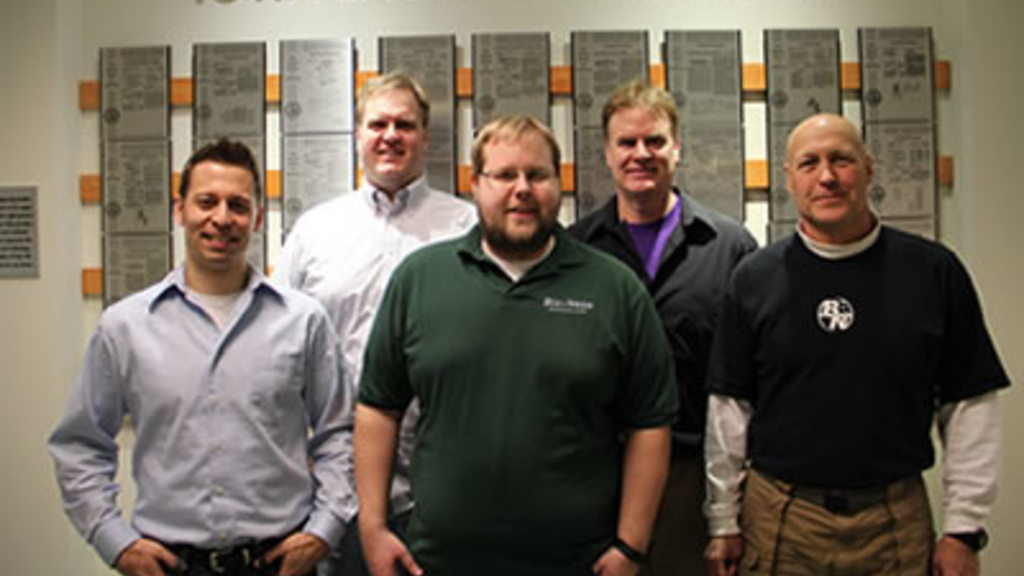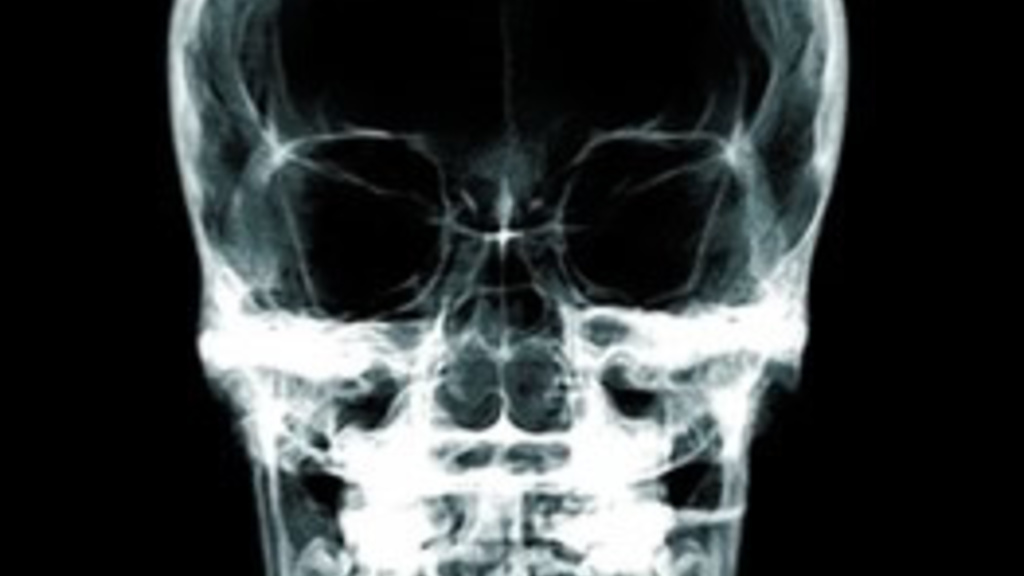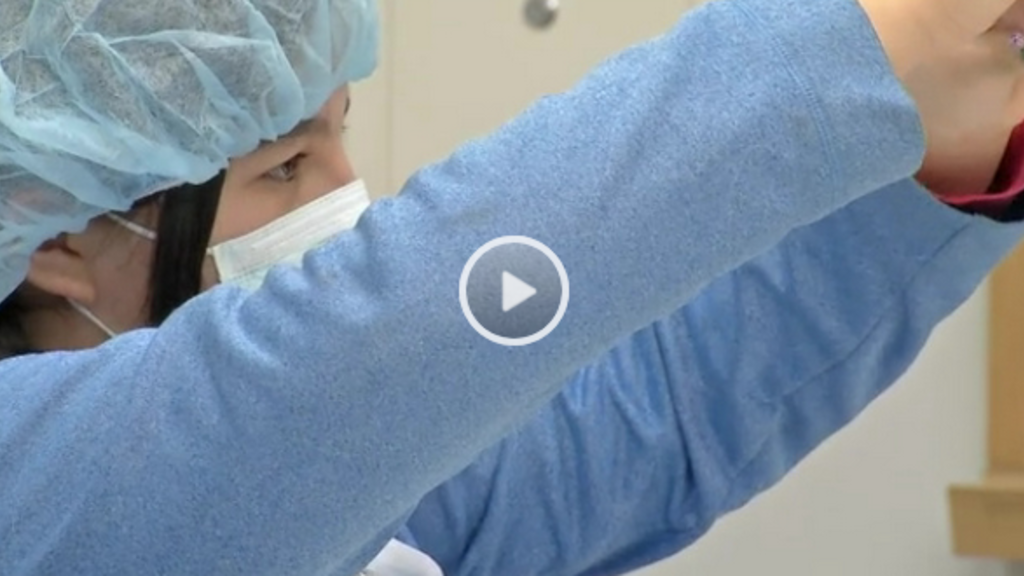Carver College of Medicine

Prickly protein
Friday, February 7, 2014
A genetic mechanism that controls the production of a large spike-like protein on the surface of Staphylococcus aureus (staph) bacteria alters the ability of the bacteria to form clumps and to cause disease, according to a new University of Iowa study.

Taking the long view
Thursday, February 6, 2014
A series of coincidences and a collaboration with researchers at the University of Iowa and Columbia University gave Michael Stone, Ironman triathlete, fundraiser, advocate, and author, answers about the retinal condition that has left him legally blind.
Carver College of Medicine pushing to revolutionize modern medicine
Thursday, February 6, 2014
The University of Iowa Carver College of Medicine, the home to the Iowa Institute of Human Genetics, plans to start a revolution in modern medicine: personal genomic medicine, which is prescribed based on the patient's genetic makeup rather than her or his body index.

Probe detects staph infection faster, more cheaply
Wednesday, February 5, 2014
Researchers from the University of Iowa have developed an ingenious noninvasive chemical probe that can detect the presence of a common species of staph in less than an hour.

Spotlight—Bio::Neos celebrates a decade in business
Tuesday, February 4, 2014
Bio::Neos, a business founded in 2004 by UI engineering students and professors, is celebrating its 10th year in business. The company is a provider of innovative software solutions for all areas of genetics and genomics research.

Amendola shines behind the scene
Tuesday, February 4, 2014
After each of the eight football victories earned by the University of Iowa this season, head coach Kirk Ferentz was quick to credit a team effort. That extends to Dr. Ned Amendola, a silent contributor who does most of his "coaching" behind the scenes.
UI receives $17 million for automotive safety research
Monday, February 3, 2014
The University of Iowa Public Policy Center has received three grants totaling $17.2 million to fund automotive safety research and the development and implementation of a national education campaign to help drivers understand the safety systems in their vehicles.
Heart screening tour travels throughout Iowa
Monday, February 3, 2014
As heart disease continues to be one of the major causes of death in Iowa, UI Health Alliance has joined with a team of health-care officials throughout the state to offer affordable mobile heart screenings to detect heart disease and stroke.
A quicker, cheaper way to detect staph in the body
Sunday, February 2, 2014
Watch out, infection. University of Iowa researchers have created a probe that can identify staph bacteria before symptoms appear. The probe is noninvasive and is expected to be cheaper and faster than current diagnostic techniques. Results published in the journal Nature Medicine.

Low bone density in skull can result in poor balance
Friday, January 31, 2014
A new UI study found that low bone density affects the entire skeleton, including bones in the skull that house the organs for balance and hearing, meaning those already prone to fractures due to low bone density are also prone to falls.
UI alumnus gives $1.5 million for UI Health Care
Wednesday, January 29, 2014
A $1.5 million gift from University of Iowa alumnus Norman E. Johnson and his wife, Barbara J. Johnson, of Naples, Fla. and Franklin, Tenn., will benefit two areas within UI Health Care—the Department of Otolaryngology in the Carver College of Medicine, and the new UI Children’s Hospital.

Mini medical school drives young women toward STEM
Monday, January 27, 2014
The University of Iowa's Carver College of Medicine hosted a Mini Medical School for girls in grades 6-8 to participate in a number of hands-on activities to give them an idea of what doctors, first responders, and researchers deal with on a daily basis.
Pagination